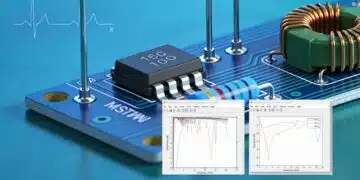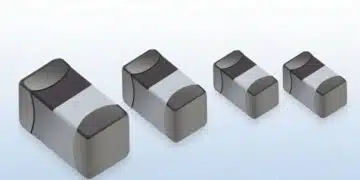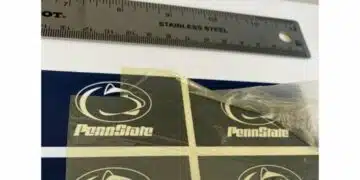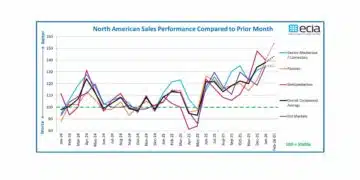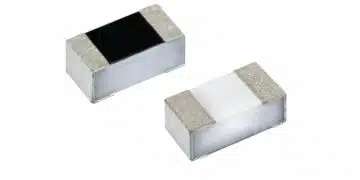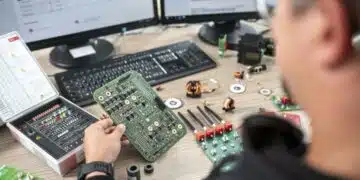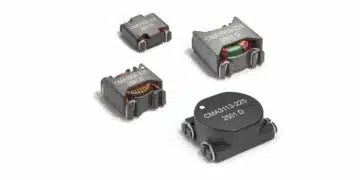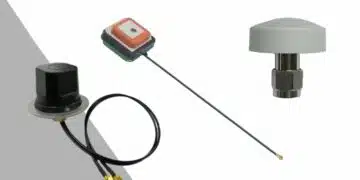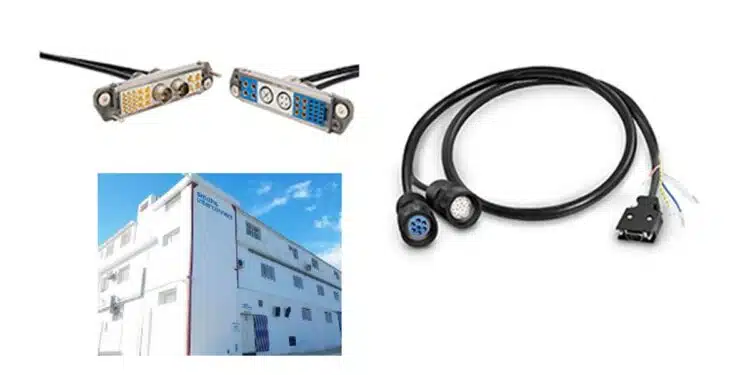Smiths Interconnect announces the expansion of its cable harness production capacity at its facility in Tunisia.
This strategic move is aimed at meeting the growing demand for high-quality cable harness solutions across various industries and strengthening Smiths Interconnect’s product offering with an investment for growth in support of all EMEA production sites.
A cable harness is an assembly of electrical cables or wires which are bound together to transmit signals or electrical power. They are crucial connectivity systems integral to a wide range of products in sectors including aerospace, defence, and automotive, and construction machinery. The ultra high-performance electronic products designed by Smiths Interconnect are purpose built for use in harsh environments where connectivity is required on a continued and consistent basis with high performance.
The expansion of Smiths Interconnect’s capabilities includes the addition of state-of-the-art manufacturing equipment and the implementation of advanced production processes. This enables customers to improve their value chain by reducing the number of suppliers required to provide connectors and cable assembly; with a one-stop-shop to deliver connectors with cable harnessed to it. This reduces lead times and supports sustainability through less movement of goods and packaging.
Mark Kelleher, Connectors BU Director at Smiths Interconnect, said: “The expansion of our cable harness capacity allows Smiths Interconnect to become a one-stop-shop for our customers, reducing their supply chain, simplifying their processes and lowering costs. By improving our cable harness and assembly capability we offer complete connectivity solutions of tested cabled connectors eliminating a double procurement process.”
The full manufacturing process includes:
- Cutting and Stripping: We use automated cutting machines to ensure each wire is cut to the precise length required by the specification. Advanced stripping tools are employed to remove the insulation from the wire ends, ensuring high-quality connections in subsequent stages.
- Crimping: Our crimping process creates solid mechanical connections between wires and contact terminations. We use both semi-automatic and manual crimping machines to ensure high precision and quality in every crimp.
- Soldering: We perform both automatic and manual soldering to ensure strong, conductive joints, adhering strictly to IPC standards. Each solder joint undergoes a visual inspection to detect any potential defects.
- Overmoulding: To protect the integrity of our cable harnesses, we offer overmoulding, which involves encapsulating the wires, terminations, and connectors with a durable material. This provides additional protection against moisture, abrasion, and environmental conditions.
- Ink Printing for Marking: After production, each cable, wire, or connector is clearly marked for easy identification, traceability, and compliance with customer specifications.
- Quality Testing and Inspection: Our cable harnesses undergo rigorous testing and inspection at multiple stages, including electrical continuity and pull-out tests, as well as visual, mechanical, and measurement inspections.
We have specialized personnel certified according to IPC A-620 for cable assembly and IPC J-STD-001 for soldering procedures. The addition of the cable assembly department at our Tunisian site enables Smiths Interconnect to specialize in manufacturing and testing cabling for signal, data transmission, hybrid, armoured and power, as well as coaxial, twinax, triax, and quadrax, Mil-Spec and D-sub connectors for aerospace, defence, transportation, and industrial applications.
From small to large volume capacities, we offer complete interconnect assemblies that leverage our high-reliability connectors with qualified cable solutions. This increased capacity enables us to better serve our global customer base and support their evolving needs by providing qualified cables and connectors in a unique, integrated solution.


